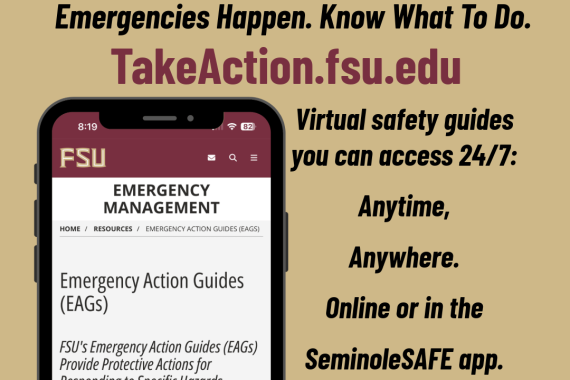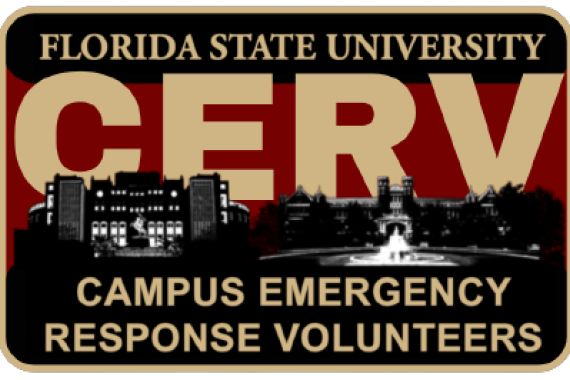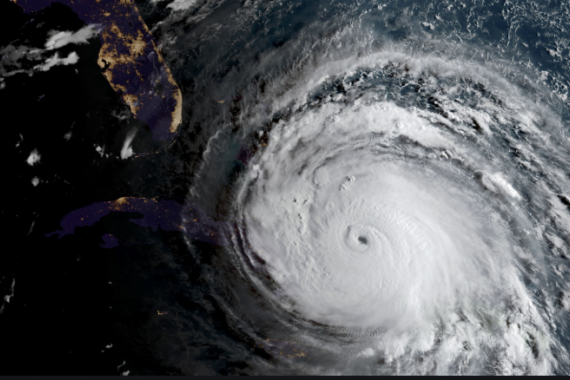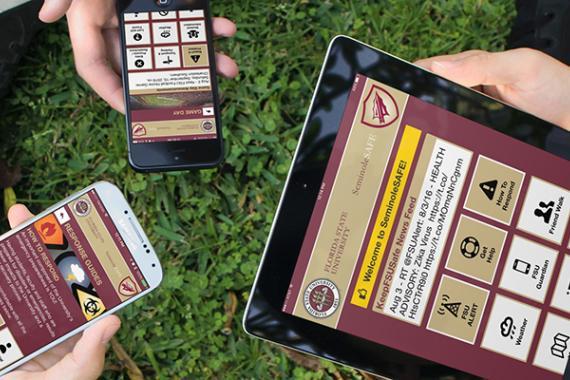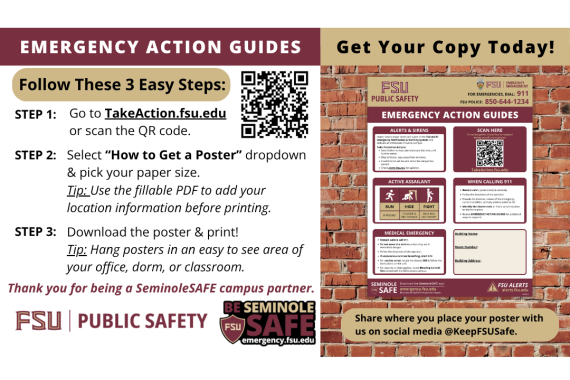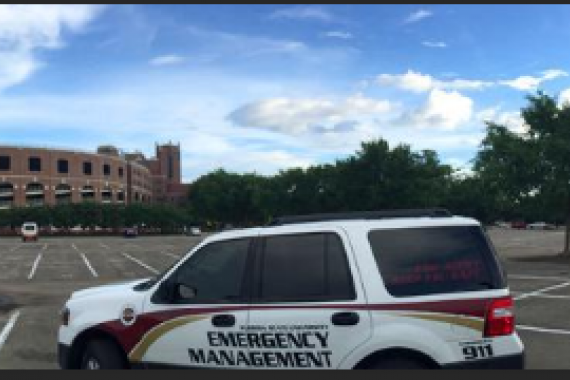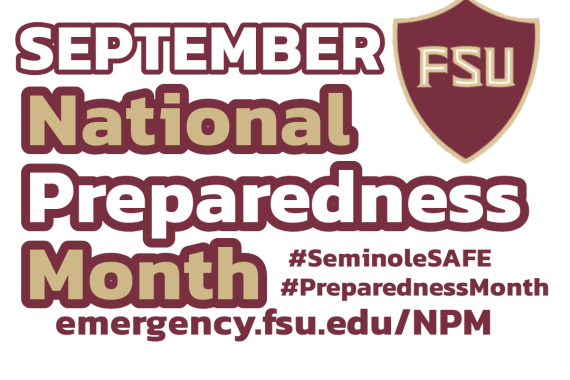WHAT IS A THUNDERSTORM?
By its simplest definition, a thunderstorm is a rain shower that is accompanied with lightning and thunder.
There are four main hazards associated with thunderstorms:
- Lightning
- Flooding
- Hail
- Winds
WHEN IS A THUNDERSTORM CONSIDERED 'SEVERE'?
By National Weather Service definition, a thunderstorm is considered "severe" when one or more of the following conditions exists:
- Winds or wind gusts in excess of 58mph.
- Hail greater than 1-inch in diameter.
- Potential for tornado development.
WILL A FSU ALERT! BE ISSUED FOR A SEVERE THUNDERSTORM WARNING?
Yes. If the NWS Tallahassee issues a Severe Thunderstorm Warning and it covers the FSU Main Campus and/or FSU Panama City Campus boundary, a FSU ALERT!: Severe Thunderstorm Warning will be issued.
WHAT CAN YOU DO TO PREPARE?
- Have a NOAA All-Hazards Weather Radio and battery backup to receive important weather and other emergency-related warnings.
- Make sure your phone number is current & updated for FSU ALERTS!
- The Emergency Alert System (EAS) and National Oceanic and Atmospheric Administration (NOAA) Weather Radio also provide emergency alerts.
- Check the weather forecast before leaving for extended periods outdoors and watch for signs of approaching storms while outside. Postpone outdoor activities if storms are imminent.
- Consider buying surge protectors, or lightning protection systems to protect your home, appliances, and electronic devices.
- Trim any trees that could be in danger of falling on your home
IF A SEVERE THUNDERSTORM WARNING IS ISSUED:
- When thunder roars, go indoors! - When you receive a Severe Thunderstorm Warning or hear thunder, seek shelter immediately in the nearest well-constructed building. Structures such as trailers, mobile homes, or sheds are not considered well-constructed buildings. A well-constructed building is the safest place to be during a thunderstorm.
- If you are outside and cannot get to a well-constructed building, Seek shelter in a car with a metal top and sides. Do not touch anything metal and avoid touching your eyes, nose or mouth.
- If boating or swimming, get to land immediately and find a sturdy, well-constructed and grounded building or vehicle immediately.
- Pay attention to weather reports and the FSU ALERT! notification system if a Severe Thunderstorm Warning is issued for FSU Main Campus and/or FSU Panama City Campus.
- If indoors, avoid running water or using a landline phone. Electricity can travel through plumbing and phone lines.
- Secure outdoor furniture and other outdoor items that could potentially become flying debris.
- Avoid flooded roadways. Turn around. Don't Drown! Just six inches of fast-moving water can knock you down and one foot of moving water can sweep your vehicle away.
HOW OFTEN DOES FSU GET THUNDERSTORMS?
The FSU Main Campus in Tallahassee averages 80 days of thunderstorms per year, primarily during the summer months of June, July, and August when thunderstorms are almost a daily occurrence. Thunderstorms also occur in the spring and fall in association with passage of weather fronts.
WHAT KIND OF DAMAGE CAN THUNDERSTORM WINDS DO?
Winds of 58mph to 85mph associated with most severe thunderstorms can peel shingles off some roofs; damage gutters, siding or other lightweight structures like carports and sheds; break tree branches; and push over shallow-rooted trees. Falling trees and branches often cut utility lines. Extremely isolated microbursts of straight-lined winds can occasionally exceed 85mph, up to 110mph, which can severely strip roofs; overturn or destroy mobile homes; break doors and windows; and topple numerous trees.
WHAT KIND OF DAMAGE CAN HAIL DO?
Hail 3/4" or greater is the size of a penny or greater. Surely, if these were to ping you in the head, it would hurt! They can also ding and dent vehicles, break windows, and damage roof shingles and tiles. Obviously, the bigger the hail stone, the greater the damage potential. Hailstones associated with Tallahassee area thunderstorms rarely exceed 1-inch, or about the size of a quarter.
| Pea | 0.25 inches |
| Marble | 0.5 inches |
| Dime | 0.6 inches |
| Penny | 0.75 inches |
| Nickel | 0.88 inches |
| Quarter | 1.0 inches |
| Ping-pong ball | 1.5 inches |
| Golf ball | 1.7 inches |
| Chicken egg | 2.0 inches |
| Tennis ball | 2.5 inches |
| Baseball | 2.75 inches |
| Grapefruit | 4.0 inches |
| Softball | 4.5 inches |
For More Information:
Florida Division of Emergency Management - Thunderstorms

